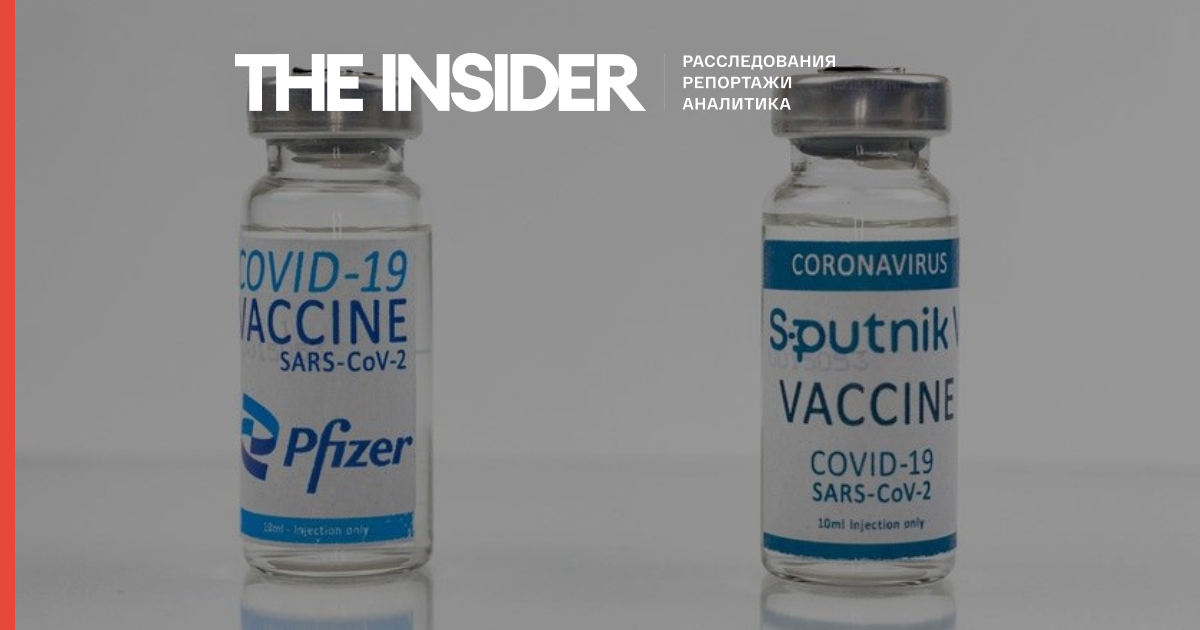Such a study was indeed carried out by the Spallanzani Institute together with the Gamaleya National Research Center for Epidemiology and Microbiology, the developer of Sputnik. But the program “Vremya” is silent that the customer of the “independent” study was The Russian Direct Investment Fund, which finances the development and promotion of Sputnik. The First Channel did not say anything about the scope of the study, but they were small: the researchers worked with blood samples from 51 people vaccinated with Sputnik and 17 people vaccinated with Pfizer. In a preprint of an article by Italian and Russian scientists, published on a specialized website for medical preprints MedRxiv.org, there is reservation:
This study has a number of limitations:
1) a relatively small number of studied samples in time groups, which may not reflect
dynamics of neutralizing antibodies;
2) lack of data on the dependence of the content of neutralizing antibodies on age and concomitant diseases;
3) some samples with moderate titers of neutralizing antibodies to the Wuhan variant of the virus give a number of results for the “omicron” variant below the detection limit and, thus, the accuracy of assessing the titers of neutralizing antibodies decreases;
4) heterogeneity of the group of recovered vaccinated”.
The abstract to the article says:
“A decrease in the level of neutralizing antibodies to the omicron variant compared to the Wuhan variant was found in many of the COVID-19 vaccines in use, and in some vaccines there is no neutralization at all.”
In the text itself, there is only a reference to a Chinese study that showed the absence of antibodies to “omicron” in those vaccinated with the CoronaVac vaccine from the Chinese company Sinovac. But there are also studies that have shown the same result in other vaccines.
In December 2021, an article by researchers from the University of Washington and the Swiss company Humabs Biomed, who studied the content of antibodies to “omicron” in people who received different vaccines, was published on the biology preprint website BioRxiv.org. As in the case of the study by the Italian-Russian group of scientists, the volume is very small and the results can hardly be considered representative. But American and Swiss scientists, unlike their Italian and Russian counterparts, who for some reason limited themselves to studying only Sputnik and Pfizer, considered all of the world’s most widely used vaccines, including Moderna, AstraZeneca, Johnson & Johnson, Sinopharm, and blood samples from unvaccinated survivors. The results are:
“In recovered patients and individuals vaccinated with Ad26.COV2.S [Johnson & Johnson] (single dose), Sputnik V, or BBIBP-CorV [Sinopharm], there was no neutralizing activity against Omicron except for one Ad26.COV2.S vaccinated and three BBIBP-CorV vaccinated. Individuals vaccinated with mRNA-1273 [Moderna], BNT162b2 [Pfizer – BioNTech] и AZD1222 [AstraZeneca], showed higher neutralization against Wuhan-Hu-1 [уханьского варианта] and retained activity against Omicron with 33-fold, 44-fold and 36-fold reductions, respectively.”
Thus, according to the results of this study, the only vaccine, after which antibodies to “omicron” were not detected at all, was “Sputnik”.
However, once again it should be emphasized that due to the small volume of studies, these results cannot be considered representative. And it is important to note that all this has nothing to do with protecting against the severe course of the disease, from which all vaccines widely used in the world protect quite effectively.
RIA Novosti, reporting on the Italian-Russian study, did emphasis on the effectiveness of the booster, that is, the third dose:
“The Sputnik Light vaccine is a universal booster for other vaccines against coronavirus, RDIF and the Center named after I.I. Gamaleya following the results of the publication of the results of a joint study by the Gamaleya Center and the Italian National Institute of Infectious Diseases Lazzaro Spallanzani (“Spallanzani”).
“’Sputnik Light’ is a universal booster for other vaccines due to the optimal configuration of the adenoviral platform at the heart of the ‘Sputnik’ vaccine, which provides higher protection against the ‘omicron’ strain and other mutations, which has been confirmed by numerous studies,” the message says. <…>
“Data obtained by the Spallanzani Institute, as well as previous studies of heterogeneous boosting with Sputnik Light, have shown that this is the best solution to increase the effectiveness of other vaccines and extend the protection period of the booster,” RDIF emphasized.
The preprint of the article does talk about the effectiveness of the booster:
“Today, the need for a third booster vaccination is obvious. And the most effective approach, as already shown in several studies, is the use of heterologous booster vaccination, pioneered in Sputnik V’s COVID-19 vaccines.”
The last phrase is not entirely clear: heterologous vaccination is the use of different vaccines, that is, an approach in which a booster dose of a vaccine that is not the same as the patient has already been vaccinated is administered. Sputnik V really applied the heterological principle: its two doses are based on different adenovirus serotypes. But this is not directly related to booster vaccination: two drugs that differ from each other have already been received by the patient during the primary vaccination with Sputnik.
But more importantly, Sputnik’s recommendation for booster vaccination is not the result of an Italian-Russian study, but only a theoretical assumption of its authors. During the experiment, only blood samples from patients who received two doses of the vaccine were studied.
